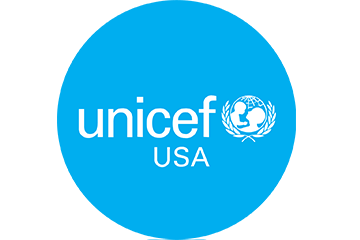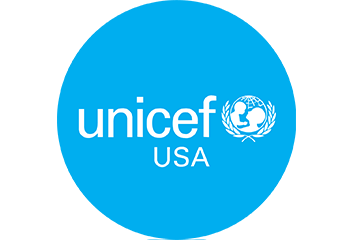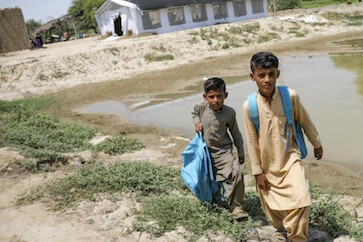For millions of disadvantaged youth around the world, technology could be their ticket to a new future – but only if they are equipped with the training, tools and knowledge to harness it.
Technology is a powerful economic equalizer, empowering the next generation of inventors, innovators and problem solvers with the 21st-century skills they need to blaze their personal path into the digital-dominated future.
One hurdle threatens to stymie their progress, however: access.
In 2019, UNICEF and global software giant SAP embarked on a strategic partnership to address workforce readiness by developing transformative education models that equip underserved young people with the hard and soft skills they need to be successful in a changing global economy. Over the past three years, the partners have leveraged their shared commitment to education and equity by supporting the development and implementation of scalable education models in India, Turkey and Vietnam.
Education is the key to unlocking change. It creates a ripple effect to solve many social and environmental issues far beyond economic growth. — Alexandra van der Ploeg, head of corporate social responsibility at SAP
This combined commitment to create a more equitable and inclusive economy and society for all, where every young person has the skills and opportunities to reach their full potential, has exceeded expectations.
Today, more than 3 million young adults in India, Turkey and Vietnam — more than double the original goal of 1.5 million — now have access to critical digital and life skills training.
“Education is the key to unlocking change. It creates a ripple effect to solve many social and environmental issues far beyond economic growth,” said Alexandra van der Ploeg, head of corporate social responsibility at SAP.
“We know the positive impacts of investing in equitable education and how it uplifts under-resourced communities through innovations, economic growth, job opportunities and overall stable living environments for youth all around the world,” van der Ploeg continued. “When youth have access to quality education and feel inspired to learn, we become that much closer to solving the world’s biggest problems.”
For Babita Saini, a science teacher at the Rajkiya Balika Uchcha Madhyamik Vidyalaya school in Jaipur, India, the real impact of UNICEF’s Change Makers program has been the dialogue it has sparked, challenging traditional views regarding careers and gender. © Chanchal Sharma for UNICEF
Closing the digital access gap in India
One in five of the world’s youth live in India – a potentially potent economic engine. Just how powerful an engine depends on how quickly India can close the digital access gap and offer the country’s 356 million teens equal access to the technical skills they need to seize the reins of their digital future.
With SAP’s support, UNICEF’s Life Skills Program, along with its Young Social Change Makers program – a 10-hour, self-paced digital curriculum of training materials and lesson plans which teachers can tailor to educate adolescents at all socio-economic levels and technological abilities – is closing that gap.
Nearly 25,000 students — 49 percent of them girls — in grades 9 to 12 in 150 schools in India are currently enrolled in UNICEF’s Life Skills and Young Social Change Makers pilot program. Three hundred teachers now have the capacity to reach out to the students.
UNICEF launched web-based Career Guidance Portals that focus on four key pillars: Career Pathways, Colleges & Institutions, Scholarships and Entrance Exams. UNICEF-led webinars and orientation sessions have trained more than 55,000 principals, teachers, administrators and government officials on the portal. A mobile version has been launched and an AI-enabled chatbot has reached over 2.2 million students. Group counselling has also enabled students recognize their abilities, interests and attitudes toward their careers, including psychometry tests.
For Babita Saini, a science teacher at the Rajkiya Balika Uchcha Madhyamik Vidyalaya (Government Girls’ Senior Secondary School) in Jaipur, the real impact of UNICEF’s Change Makers program is the dialogue it has sparked – challenging traditional views between careers and gender, and challenging stereotypes like, “boys are better in mathematics” and “teaching is good for girls” or “teachers can balance work and household better than other professionals.”
UNICEF, SAP and Turkey’s Ministry of National Education are working together to launch Design and Skills Labs and Science Learning Spaces, offering Turkey’s youth — like these students at Anatolian High School in Akcaabat — unprecedented access to interactive-learning portals where they can learn critical digital skills. © Olgu Baran for UNICEF
A new tech wave in Turkey
In Turkey, 17 percent of young people between the ages of 15 and 19 are neither employed nor enrolled in school or training programs. With support from SAP, Turkey’s Ministry of National Education (MoNE) and UNICEF Turkey set out to reverse that trend by rolling out a wave of Design and Skills Labs (DSLs) that provide at-risk youth with step-by-step digital education and training.
To date, UNICEF Turkey has supported MoNE for the efficient and effective use of 763 DSLs in upper-secondary schools and developed and distributed a national DSL Teacher’s Manual – a 370-page guide featuring 40 interdisciplinary, interactive activities and lesson plans. This manual, which has been integrated into MoNE’s online education platform, has been accessed by over 32,000 teachers and has impacted the lives of more than 611,000 Turkish teenagers, 55 percent of whom are young women.
In 2022, MoNE renewed their commitment to the skills development agenda with an emphasis on Science, Technology, Engineering and Mathematics (STEM) education. Building on the successful DSL model, SAP is supporting UNICEF and MoNE on a new concept, Science Learning Spaces (SLSs), to advance MoNE’s commitment to reduce academic gaps and enhance skills development. With the establishment of SLSs in disadvantaged upper-secondary schools, students will be equipped with relevant academic and 21st-century STEM skills.
These DSLs and SLSs have given Turkey’s youth access to unprecedented, peer-to-peer, interactive-learning portals where they can learn critical digital skills, share knowledge and experiences, and develop teamwork and valuable self-expression skills.
For 10th grade DSL student, Hülya, the story is female empowerment. “We install circuits here. We work on robotic stuff. We make cars. Many people in Turkey believe that these are more of a men’s job. But actually, it’s not the case. I believe that women can do much better than men. And it proves to be true by looking at my teacher, Zeynep Hanım.”
Students at Tan Nhuan Dong secondary school in Dong Thap, Vietnam, have access to quality science and technology lessons through new augmented and virtual reality programs. © UNICEF/UN0410265/Le Vu
Youth powering Vietnam’s digital future
Vietnam’s economic future hinges on the digital prowess of its youth, who currently comprise 20 percent of Vietnam’s workforce.
Geographic isolation and cultural customs are headwinds Vietnamese youths face as they strive to acquire the essential skills to transition to the digital workplace. These headwinds are especially stiff for girls. Only 30 percent of Vietnam’s poorest students continue to lower secondary school; for poor ethnic minority girls, that figure is 10 percent.
Vietnam’s educators and government leaders, however, have quickly embraced the value of investing in their youth. Working directly with the Government of Vietnam’s Ministry of Education and Training (MOET) and Ministry of Labor, Invalids and Social Affairs (MOLISA), and leveraging the ongoing educational reform process, UNICEF and SAP are supporting the development of digital learning curricula and transferable skills at primary and secondary schools and Technical and Vocational Education & Training (TVET) centers.
A cascade training model was established to maximize the curriculum’s reach, equipping 2,199 master trainers on the use of technology and social innovation. The training indirectly benefited over 700,000 teachers who distributed this information to 10 million young people nationwide, including those from remote communities and ethnic minorities.
UNICEF Vietnam, with SAP’s support, has also piloted augmented virtual reality (AVR) and gamification in teaching and learning programs. Through these programs, 432 teachers have been trained in introducing visual and interactive STEM learning to their students, building teachers’ capacities to use innovative teaching tools.
These commitments have helped students like Ma Thi Si, an 11-year-old girl who was introduced to AVR and gamification content last year. Now engaging more actively in science and technology classes, Si says she loves science, technology, engineering and mathematics because it gives her and her classmates access to explore a new virtual world. “When we learn science, the teachers usually go dryly through the textbooks and explain things using the blackboard,” she said. “This is so different!”
Top photo: Students of Bat Xat Secondary School in Lao Cai province, Vietnam, were excited to try augmented virtual reality (AVR) technology supported by UNICEF and SAP on December 14, 2021. UNICEF and multinational software company SAP are working directly with the Vietnamese government to help develop digital learning curricula and transferable skills that primary and secondary school students will need to transition to the digital workplace. © UNICEF/UN0610287/Le Vu





